
The Elevate Journal
- Leadership
- Nonprofit Support
- Accessibility
- Community Engagement
- Equity
- Data Collection
- Learning
- Internal Culture
- Collective Impact
- Storytelling
- Compassion
- Operations
- Systems Change
- Facilitation
- Impact
- Evaluation
- YPAR
- Fundraising
- Focus Groups
- Data
- Reflection
- Surveys
- Services
- Collaboration
- Strategy
- Stakeholders

Data collection audit: What are we already collecting?
You might be surprised at what great sources of data you already have! Whether data collection is being implemented formally or informally, odds are you are paying attention to the impact of your work as well as trends in the work more broadly.
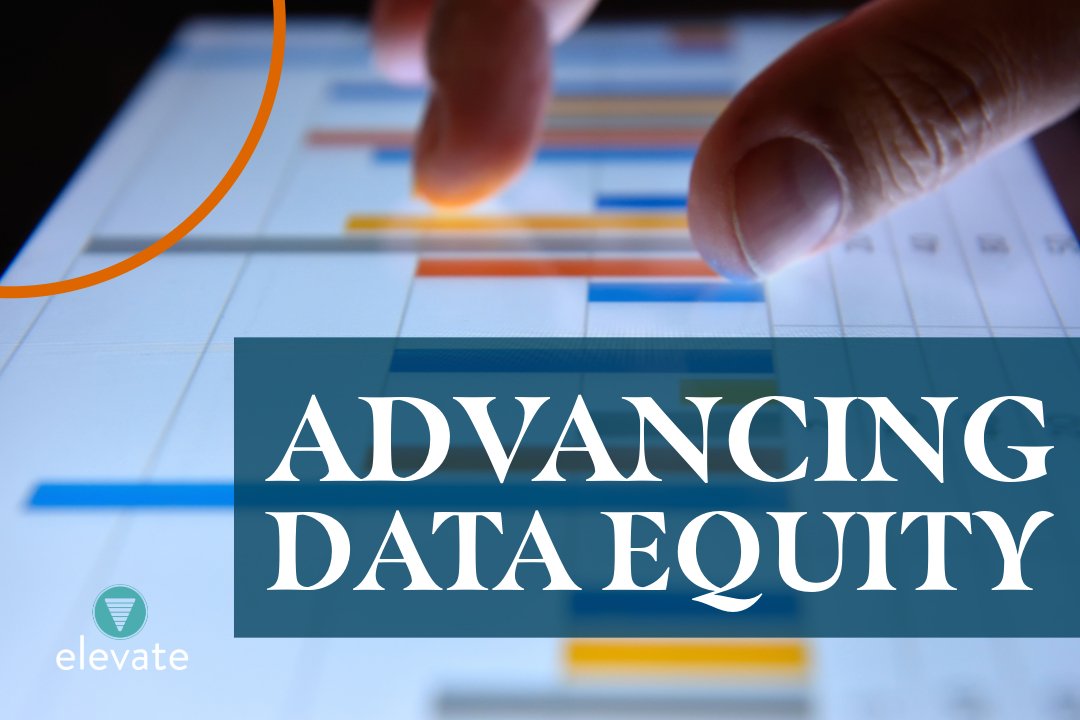
Advancing data equity
A key concept we try to infuse into our evaluation work and encourage our clients to consider is the concept of data equity, which highlights the need for fair and equitable access to and use of data in evaluation processes.
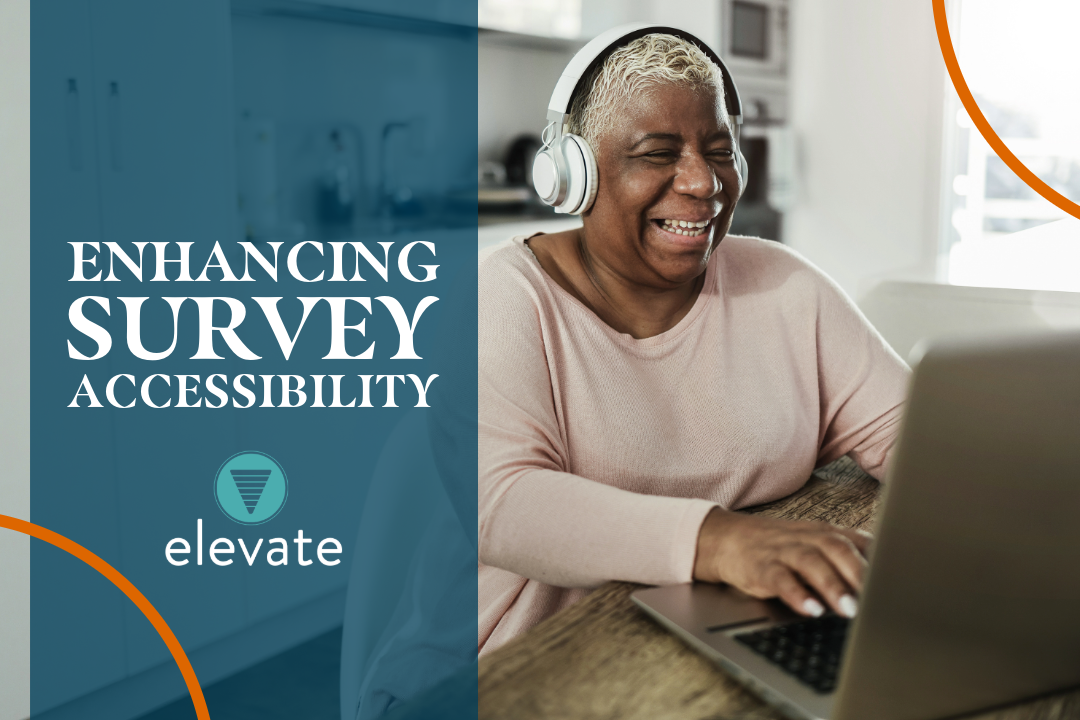
Enhancing Survey Accessibility
Several of West End Home Foundation's funded partners serve older adults who are blind or have limited vision. This challenged us and our partners at WEHF to consider ways to make our online survey more accessible to these individuals. We haven’t arrived at a perfect solution yet, but here are some strategies we’ve learned about that can make online survey data collection more approachable for individuals who are blind.
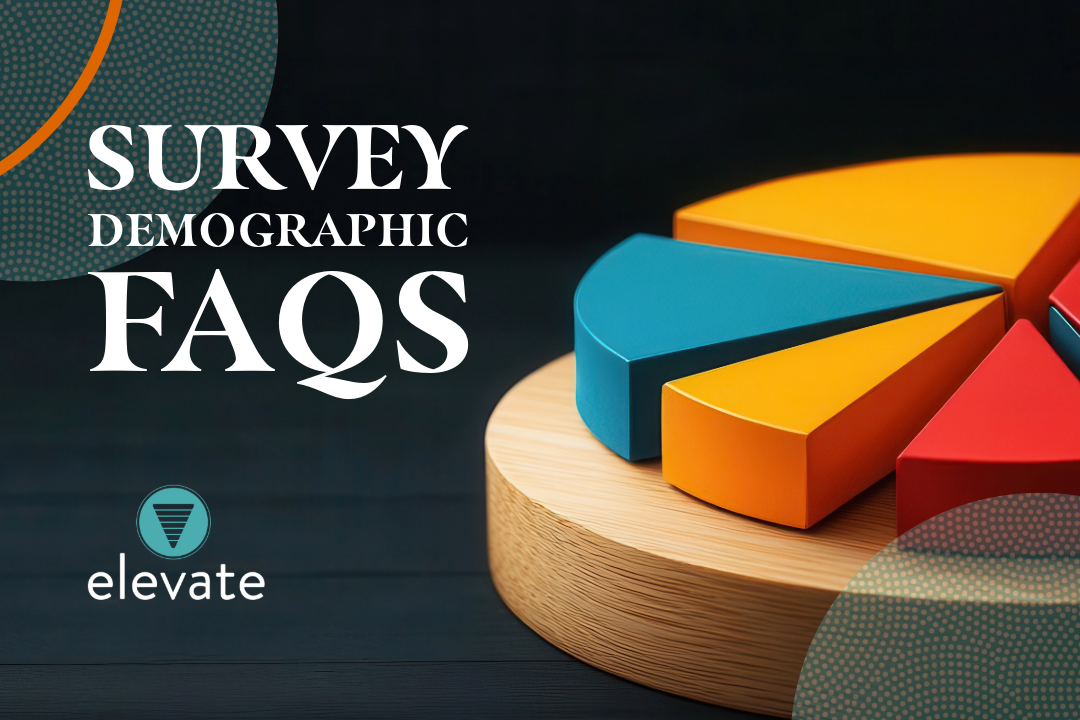
Survey Demographic FAQs
When designing survey tools with our clients, we often receive many questions surrounding the demographic portion of the questionnaire. Demographic questions can be tricky for a number of reasons, and there is no real consensus around best practices. In this post, we will share Elevate’s answers to some demographic FAQs that are backed by literature and our own experience in consulting.
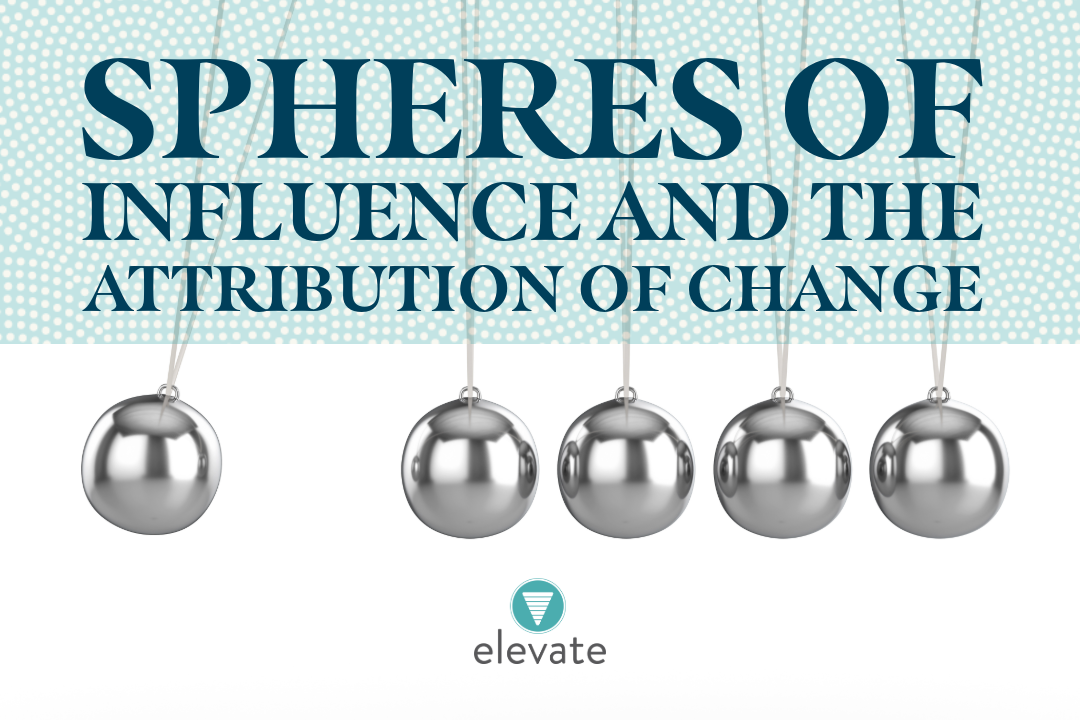
Spheres of Influence and the Attribution of Change
A lot of our initial conversations with clients start with some version of the following: “We really don’t know how to prove that we do x. We know that we see that change day to day, but we don’t have the data to prove that we caused that change.” The key word in this request, of course, is “caused.” Often, organizations feel pressured to demonstrate that their intervention was the sole cause of an observed change. Even when funders or stakeholders aren’t requesting that directly, it’s often assumed that “proving” that your intervention caused an observed change is still the “holy grail” of evaluation.
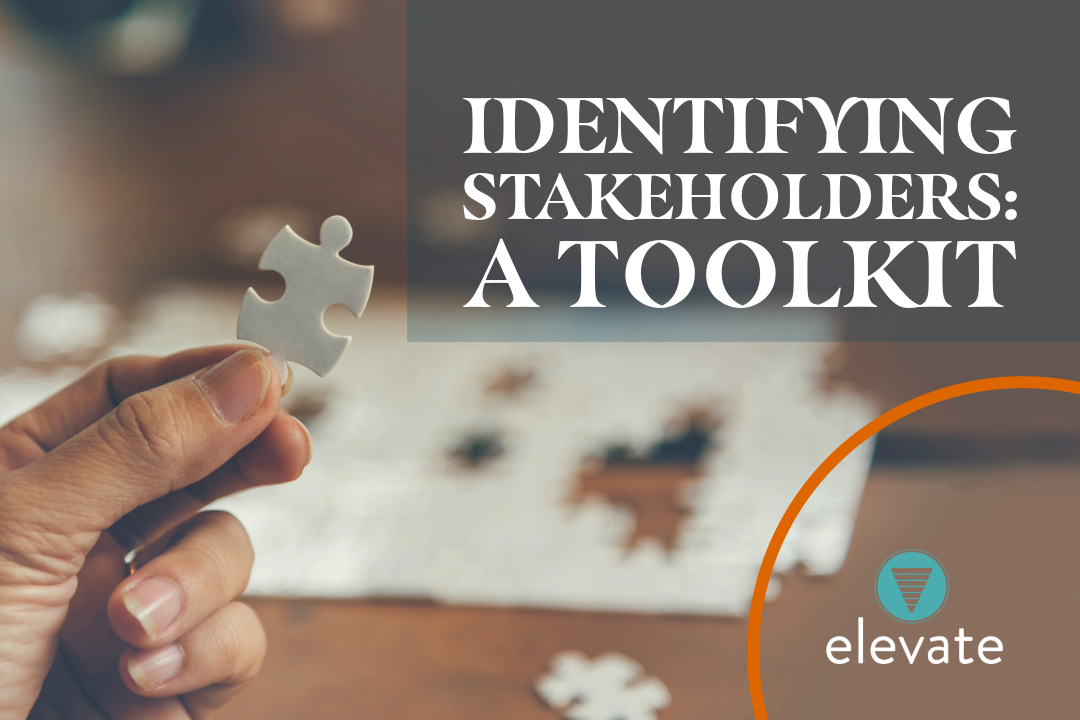
Identifying Stakeholders: A Toolkit
It is likely that the term “stakeholders” is one you’ve heard before. It’s used across sectors to describe someone who has an interest in and/or is affected by a business, an investment, a project, etc. Stakeholders can be individuals, communities, social groups, or organizations. At Elevate, stakeholders are an essential part of our approach to evaluation and to systems change work.
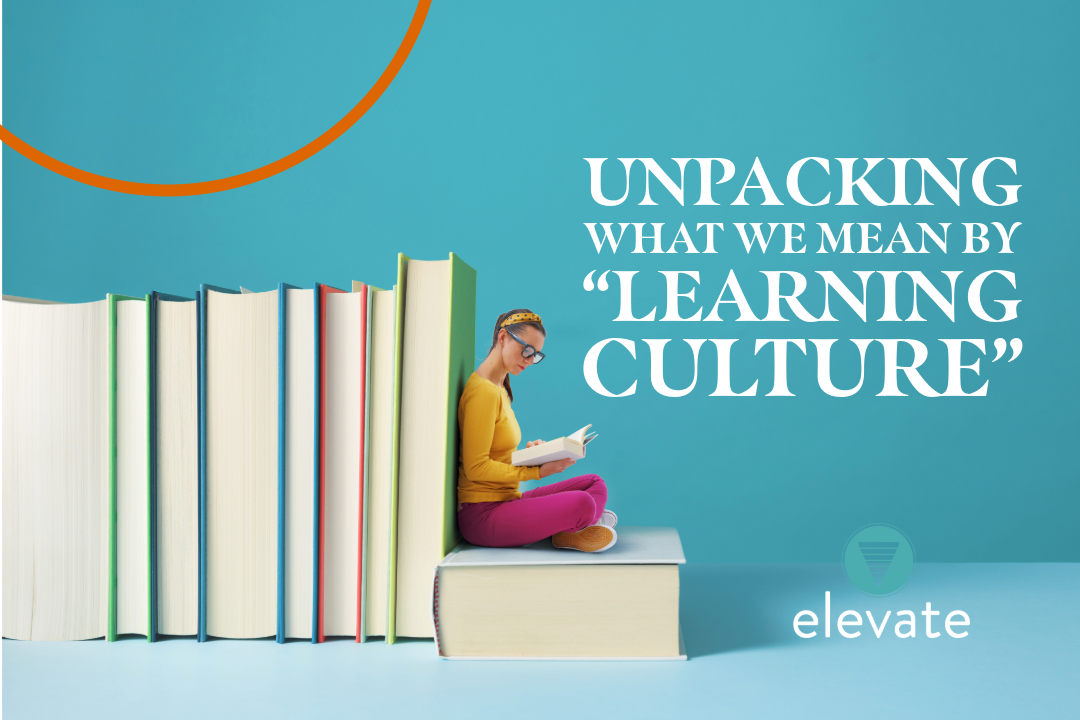
Unpacking What We Mean by “Learning Culture”
You have likely heard or read about the idea of a learning culture. If you heard about it from us, you may have seen the stars in our eyes as we talked about our earnest belief that shifting organizational cultures to center learning can transform the nonprofit landscape, leading to more engaged and fulfilled staff, stronger relationships across agencies, and ultimately, better outcomes for clients.
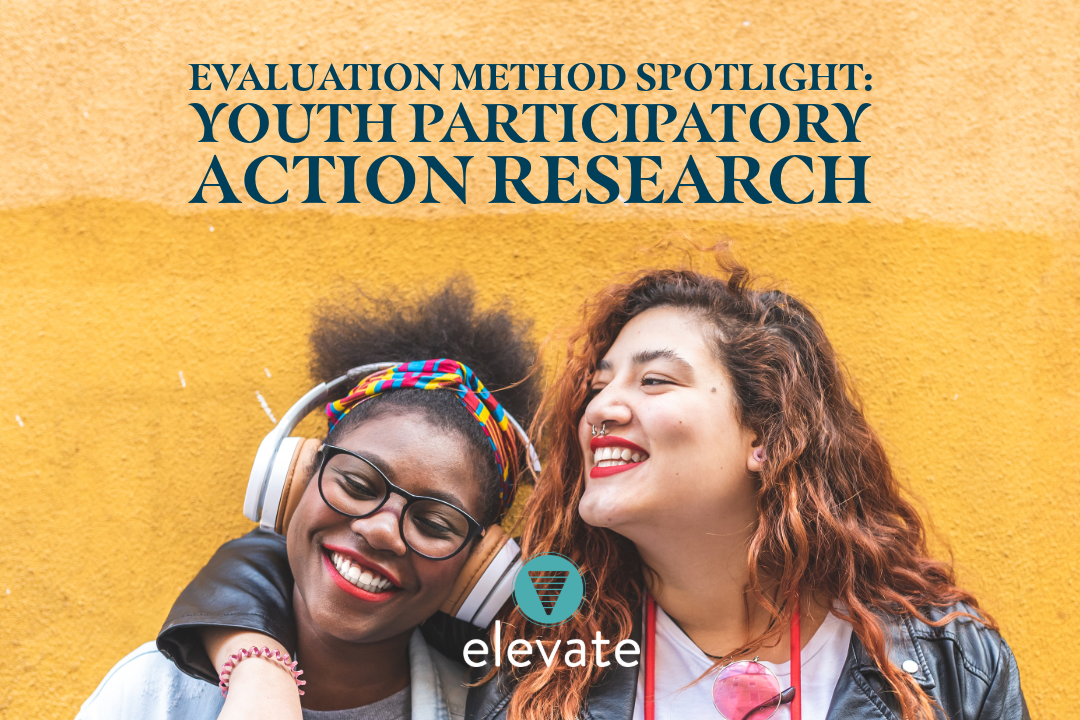
Evaluation Method Spotlight: Youth Participatory Action Research
At Elevate, we strongly believe that evaluation and research must go beyond the numbers to tell the stories of people and communities. As such, we believe in the value of qualitative and community-based, participatory methods and approaches, including participatory action research (PAR). Specifically, we recently had the privilege to support Nashville’s Opportunity Youth Collaborative (OYC) in conducting a youth participatory action research (YPAR) project with its Youth Leadership Team to inform the strategy of the OYC.
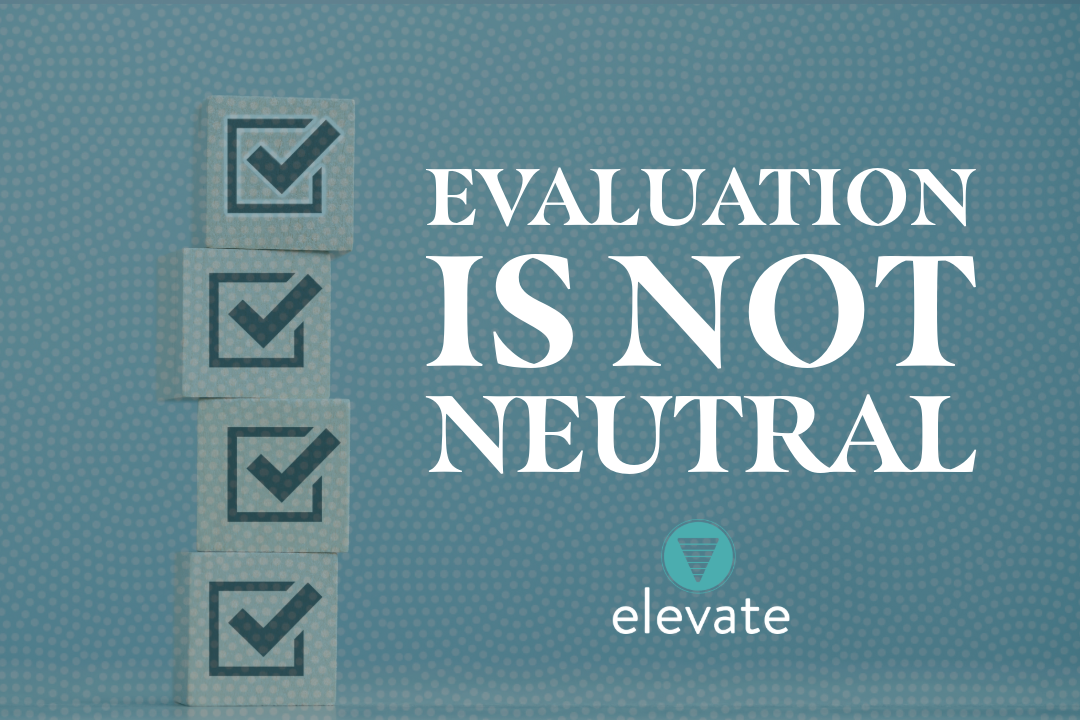
Evaluation is Not Neutral
Over the past few weeks, we have been turning our methods inward to critically examine how we do our work, as well as listening to each other and investigating our experiences, assumptions, and approaches related to equity and oppression. Together we are rebuilding “the Elevate way” based on clearer articulations of why and how our work advances equity.
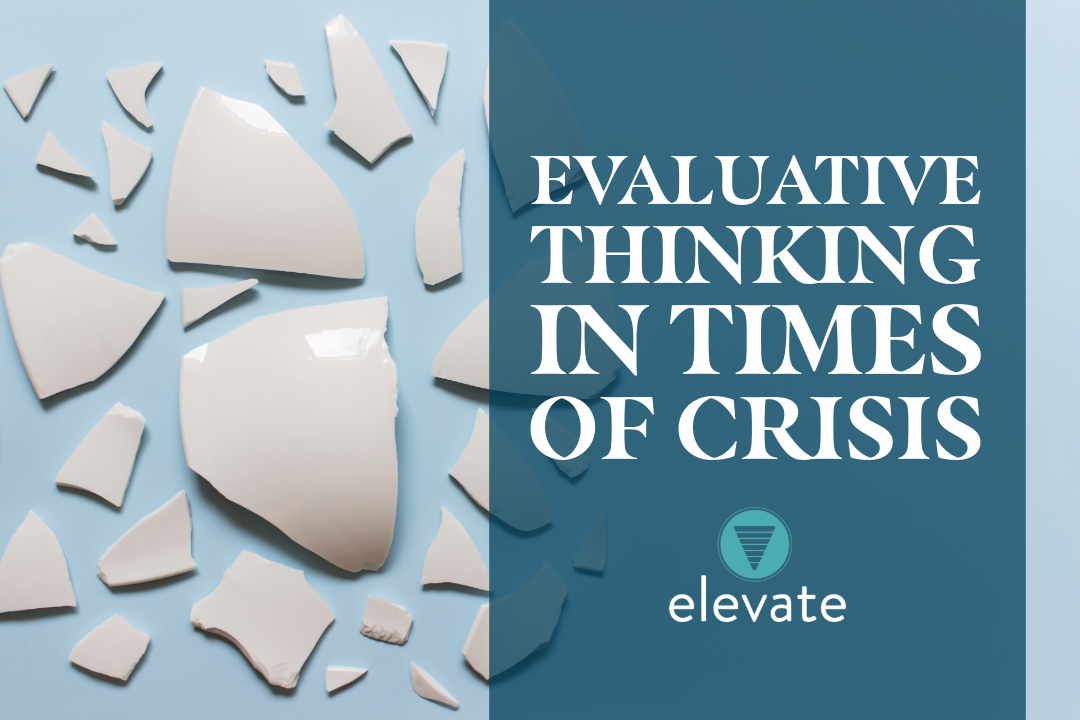
Evaluative Thinking in Times of Crisis
Last week, while listening to one of my favorite podcasts, Pantsuit Politics, something that one of the cohosts really stood out to me. She said, “What a ‘pandemic world’ does is accelerate change and clarify problems.”
